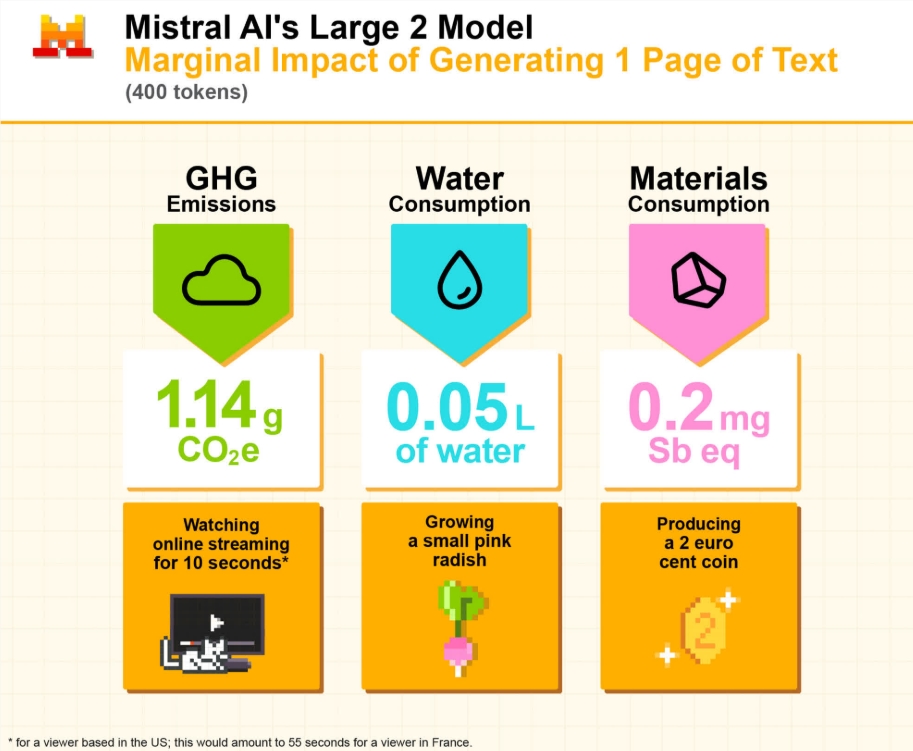Mistral AI is a technology company based in Paris, focusing on developing open and open-source large language models. Recently, the company conducted a comprehensive lifecycle analysis of one of its large language models to assess the environmental impact of artificial intelligence technology.
This study was conducted by Mistral in collaboration with the sustainable development consulting company Carbone4 and the French Agency for Ecological Transition. The analysis results were also peer-reviewed by the environmental consulting companies Resilio and Hubblo.

The analysis primarily focused on the entire lifecycle of Mistral AI's Large2 model, assessing its impact in three key areas: greenhouse gas emissions, water usage, and material consumption. The study found that the training and inference stages of an AI model are the most environmentally impactful. Mistral stated that 85.5% of the greenhouse gas emissions and 91% of the water consumption of the model occur during the development and user interaction phases.
As of January 2025, after running for 18 months, Mistral's Large2 model has emitted 20.4 metric tons of carbon dioxide and consumed 281,000 cubic meters of water. The study also estimated the marginal impact of inference, predicting that each interaction involving 400 tokens with the "Le Chat" chatbot would generate approximately 1.14 grams of carbon dioxide emissions and 45 milliliters of water consumption. These data show that while the environmental impact of a single query is small, the overall environmental challenge becomes significant when considering long-term interactions with millions or even billions of users.
Mistral also acknowledges some limitations in its research, particularly in accurately quantifying the hardware performance degradation caused by the workloads of large language models on GPUs and data center infrastructure.
Despite this, the data in the report align with assessments from other institutions regarding the environmental impact of artificial intelligence. Mistral stated that it will update its environmental report, calling for greater transparency across the entire AI industry and a commitment to achieving global climate goals. The company noted that some current policies are contrary to these goals.
Key Points:
🌍 Mistral AI conducted an environmental impact analysis of its large language model, highlighting the sustainability challenges of artificial intelligence technology.
💧 The training and inference stages account for 85.5% of greenhouse gas emissions and 91% of water consumption, showing the concentration of environmental impact.
📊 Mistral plans to update its environmental report, calling for industry transparency and supporting global climate goals.










